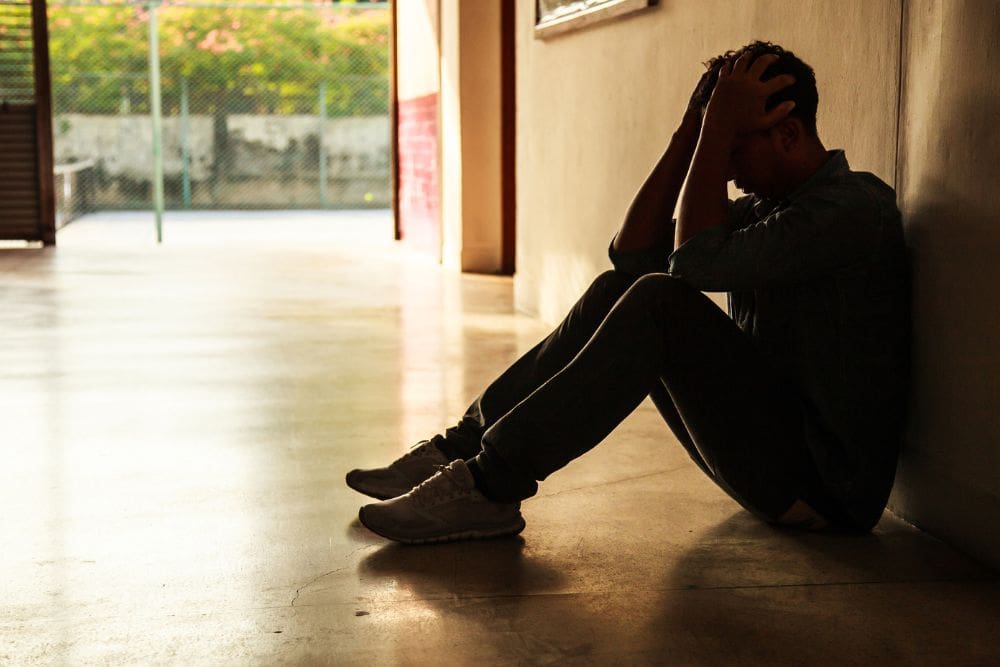On the outside, you might look like you have it all together. You’re holding down a job, showing up for your family, and keeping things moving. But inside, the weight of your addiction may be wearing you down. It can feel like you’re stuck in a silent battle—one you’re expected to fight on your own. If this sounds familiar, you’re not alone. Many men struggle with asking for help when it comes to addiction, often because they’ve been taught not to.
Whether it’s pride, fear, shame, or the belief that needing help is a weakness, the pressure to tough it out can keep you stuck. But the truth is, asking for help is one of the strongest, most courageous things you can do.
5 Common Challenges Men Face When Seeking Help
If you’ve ever wondered why it feels so hard to reach out, here are some common challenges men face when it comes to seeking support for a substance use disorder:
- Stigma. There’s still a lot of stigma around addiction and mental health, especially for men. Society often equates masculinity with self-reliance, strength, and emotional control. Admitting that you’re struggling with drugs or alcohol can feel like you’re going against that image. But recovery requires honesty—and there is nothing weak about being honest.
- Societal pressures. Men are often seen as the providers, protectors, and problem-solvers. You might feel pressure to be the “rock” for everyone else, even when you’re crumbling inside. That responsibility can be isolating, making it harder to admit you need help, too.
- Shame and embarrassment. Addiction can create a lot of shame. You may feel like you’ve failed yourself or your loved ones. You might be afraid of what others will think. But shame thrives in silence. Once you begin speaking your truth and seeking help, you can begin to let go of that burden.
- Fear. Fear of judgment. Fear of change. Fear of what life will look like without the substances you’ve come to rely on. These are all valid concerns—but fear shouldn’t be the thing that holds you back from a healthier, fuller life.
- Pride. Maybe you think you should be able to just deal with it on your own. Maybe asking for help feels like giving up control. But the reality is that pride can become a barrier to healing. True strength is found not in pretending everything’s fine, but in taking steps to get better.
How to Ask for Help
Asking for help is a big step to take and means you’re ready to improve your life. Here are some steps to get started:
- Be honest with yourself. If you’re using substances to numb your feelings, escape pain, or cope with stress, that’s something to pay attention to. Be honest with yourself and acknowledge the struggle. That’s where healing begins.
- Reach out to someone you trust. You don’t have to tell everyone what you’re going through. Start with one person—someone who won’t judge you. That might be a friend, family member, mentor, or therapist. Speaking your truth out loud can lift an enormous weight.
- Talk to a professional. You don’t need to figure it all out by yourself. A counselor, doctor, or addiction specialist can help you explore your options and guide you toward the right kind of support. You’re not weak for needing professional help—you’re smart for recognizing it.
- Explore treatment options. At Las Cruces Recovery Center, we offer evidence-based treatment designed to meet you where you are. We understand the unique challenges men face and create a safe, supportive environment where you can open up, heal, and grow stronger.
Where to Turn for Support
There’s no one-size-fits-all approach to recovery, but there are many resources available. Here are a few you might consider:
12-Step Programs
Groups like Alcoholics Anonymous (AA) or Narcotics Anonymous (NA) offer a supportive community of people who understand what you’re going through. You don’t have to speak right away—just showing up and listening can be a powerful step.
Men’s Support Groups
Joining a group specifically for men can help you connect with others who face similar challenges. These groups often focus on breaking down the stigma around men and emotions while creating space for honest conversations.
Outpatient or Inpatient Treatment
Depending on your needs, you might benefit from an outpatient program where you attend sessions during the week or an inpatient program where you can fully focus on your recovery. Many treatment programs include individual therapy, group counseling, and holistic approaches to healing.
You Don’t Have to Do This Alone
Located in New Mexico, Las Cruces Recovery Center is here to walk beside you—without judgment, without shame. If you’re ready to take that first step, we’re ready to help you take the next one. Please contact us today to learn more about our programs to put you on the path to a lasting recovery.



